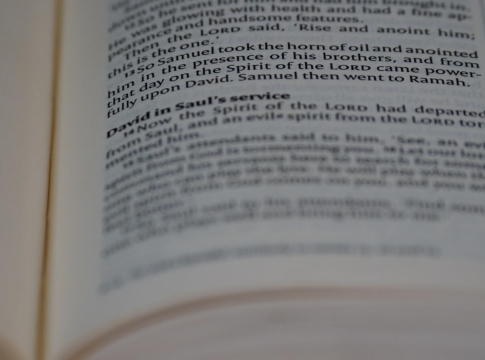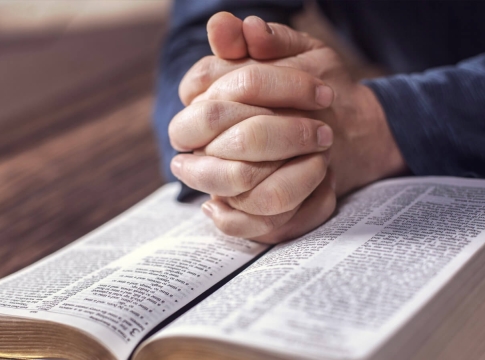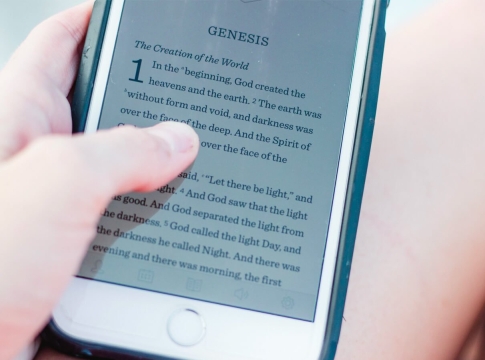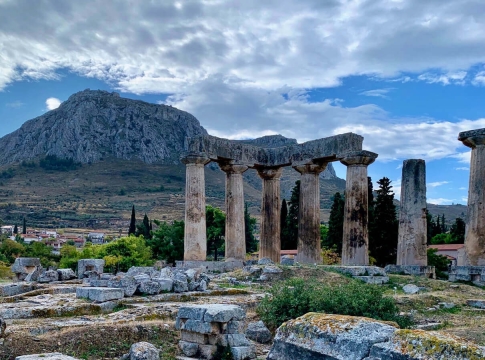
Zephaniah is one of the twelve so-called minor prophets. He may have been a son of the famous king Hezekiah and prophesied during the time of the Judean king Josiah (Zephaniah 1:1). Josiah served the Lord, the God of Israel, and tried to reform land and people to bring them to their God. However, Josiah could not undo the sin of his predecessors. And despite his efforts, there were still many people who adhered to the idols. It was during this time that Zephaniah proclaimed the Word of the Lord.
Zephaniah sets off with the astonishing words: “I will utterly sweep away everything from the face of the earth, declares the LORD” (Zephaniah 1:2). Judgment is going to come upon the earth. This judgment is specifically directed against Judah and Jerusalem. The inhabitants did not seek the true God nor inquire of Him (Zephaniah 1:6).
The Day of the Lord (Zephaniah 1:7-2:3)
Zephaniah’s prophecies center mostly on the idea of the day of the Lord. He illustrates that the great day of the LORD is approaching with several analogies and similarities, saying, “The great day of the Lord is near, near and hastening fast” (Zephaniah 1:14). This day is a day of judgment and horror, on the one hand. However, today is also a day of hope. All the wicked will face judgment, but those who put their faith in the name of the Lord will be saved (Zephaniah 3:12).
When Jerusalem fell, it was the day of the Lord (587 BC). However, the day of the Lord is also viewed in the New Testament as the [future day of judgment], on which Jesus will descend from heaven to judge the entire planet. “Seek the Lord, all you humble of the land, who do his just commands; seek righteousness; seek humility; perhaps you may be hidden on the day of the anger of the Lord,” is the current escape route, though. Zephaniah 2:3.
Prophecies against the nations (Zephaniah 2:4-3:8)
Like the majority of the other prophets, Zephaniah also includes prophesies against the enemies of Israel in one part. Zephaniah speaks to the towns of Gaza, Ashkelon, Ashdod, and Ekron, which are among the Philistines. He addresses Israel’s eastern neighbors, Ammon and Moab. Assyria and the Cushites will face judgment. The magnificent city of Nineveh, which was dreaded by all in the ancient East, is predicted by Zephaniah to become a ruin: “What a desolation she has become, a lair for wild beasts! Everybody who walks by her gives her a hiss and a fistshake.Zephaniah 2:15 Zephaniah does not end with the nations of gentiles. He also expresses his dismay for Jerusalem, the city of horrible injustice, in the same breath. [Sin is not forgiven]!
Salvation after judgment (Zephaniah 3:9-20)
The book of Zephaniah is where the light finally appears after all these gloomy words. God’s wrath does not prevent His salvation from arriving. “For at that time I will change the speech of the peoples to a pure speech, that all of them may call upon the name of the Lord and serve Him with one accord,” declares God, Himself, announcing His intervention.(Zephaniah 3:19) The arrogant shall go before the Lord. The remnant of Israel that no longer speaks lies shall serve him. The Lord, their God, is among them, and the people will shout with delight. All the countries of the world will be praising them when their captivity is reversed.
The message for us
- God takes sin completely seriously. Injustice will receive appropriate punishment.
- The whole world will encounter the day of the Lord.
- God himself provides salvation through judgment.





